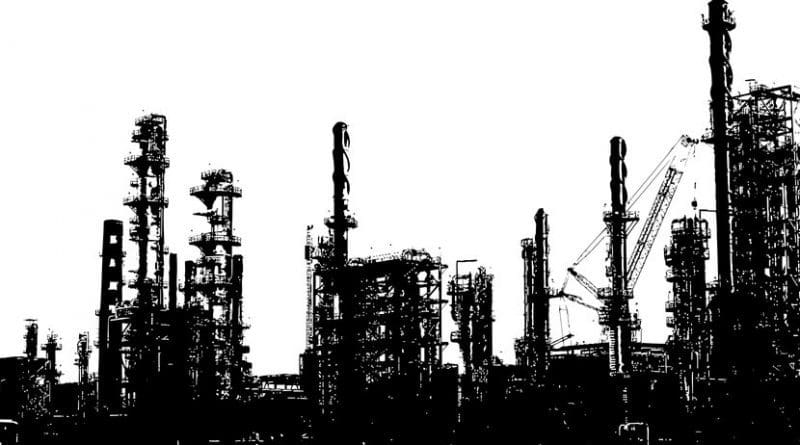Oil: Weakening Global Economic Outlook Trumps Geopolitics – OpEd
By Arab News
By Cornelia Meyer*
After the Sept. 14 drone and missile attacks on Saudi Aramco facilities had knocked out 50 percent of Saudi production, which equaled about 5 percent of global production, the Brent price briefly surpassed the $70 mark. More than three weeks later, oil is continuing its losing streak and the question on everybody’s mind is how much lower will it go? In early Monday European trading, Brent was at $58.58, slightly up from last Thursday’s low of about $57. On the same day, West Texas Intermediate looked perilously close to undershooting the $50 mark.
What happened? Firstly, Saudi Aramco proved its competence and restored production by Sept. 25, days ahead of schedule. Capacity is slated to be restored by Nov. 30. In other words, the supply concerns were blown away in just under two weeks.
The demand picture also looks less than rosy as trade wars and a general slowing of the global economy have taken their toll. Economic data releases have disappointed on both sides of the Atlantic and especially in China, where the manufacturing purchasing managers’ index stood at 49.8 for September. While that is slightly up from the country’s August number of 49.5, it still represents a contraction in manufacturing output. Last Wednesday, stock markets saw their worst day of the year on the back of the disappointing global economic data releases. We are looking at the inevitable end of the growth cycle, which started after the global financial downturn of 2008/2009.
The outlook for oil has not looked so bleak since the financial crisis. According to Standard Chartered, oil demand has risen year on year in 113 months and only fallen in seven, five of which have been in 2019. The Thursday low was also influenced by the US Energy Information Agency, as it released its monthly crude inventory data. Stocks rose by 3.1 million barrels, which was nearly double the amount expected.
News from the US-China trade front was also bleak, with President Donald Trump contemplating even more stringent restrictions. We shall see where this takes us when the US and Chinese delegations meet this week. The World Trade Organization gave the Trump administration the go-ahead to impose $7.5 billion of tariffs on the EU as a countermeasure to illegal government aid to Airbus. We can expect the EU to not take this lying down and continue its proceedings against Boeing.
If the current supply-demand situation persists, OPEC+, an alliance between OPEC and 10 friendly oil-producing nations led by Russia, will probably need to review its production agreement. In June, it decided to take out production to the tune of 1.2 million barrels per day (bpd) through March 2020. The supply overhang is set to get worse as observers expect a 2.2 million bpd wall of non-OPEC crude to hit the markets later this year and into 2020.
The picture is not rosy. Fears over the global economic outlook clearly dominate. Then again, markets are fickle and geopolitics could kick in at any time. Iraq, OPEC’s second-largest producer, is facing a challenging domestic situation, with riots that have led to the deaths of more than 100 people. It is unlikely, but still within the realms of possibility, that the unrest could affect oil exports if it spins out of control. One also never knows quite what to expect from Libya and Nigeria, which have surprised on the upside as well as on the downside due to their challenging domestic situations.
The shale industry is slowing. Low prices challenge profitability. One only needs to listen to radio stations in Texas, where ads aimed at hiring oilmen have dried up. Many experts also expect the Permian Basin to near the end of its expansive lifespan. That said, the shale space has never ceased to surprise over the last decade-and-a-half.
All in all, the outlook for oil looks challenging in the near future, at least until the next unexpected event happens on the supply or the demand front. There is only one certainty in the oil space, which is that nothing is ever certain.
• Cornelia Meyer is a business consultant, macro-economist and energy expert.

